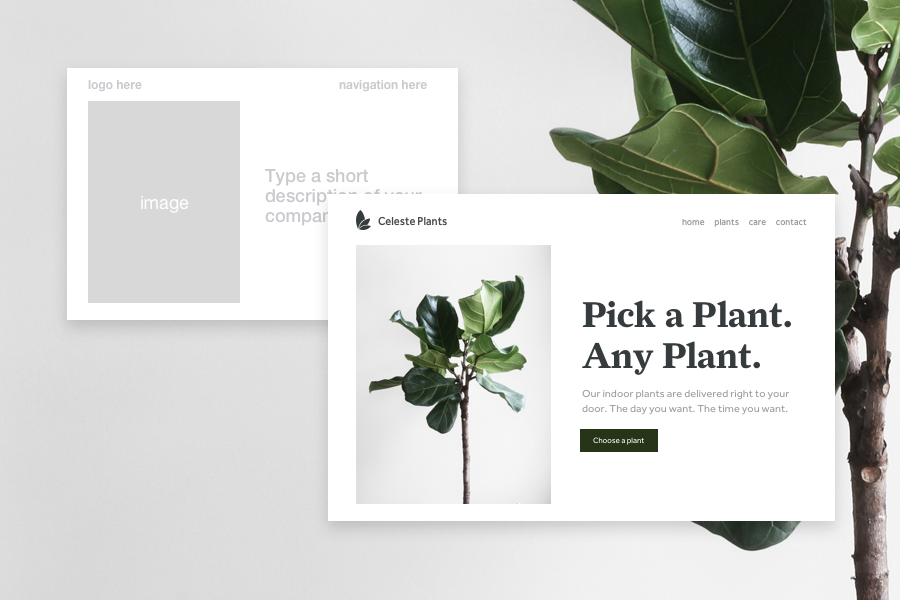There's no doubt that having a great website is critical for telling the world your brand story and growing your business, but the pressure that comes with building your first website can often be overwhelming. For some small business owners, the desire to get it just right is so strong that they delay the release of their website indefinitely or sometimes don't bother with building anything at all.
Fortunately, your first website doesn't have to be perfect to be effective. Here are four tips to help you get started with a website and improve as you go.
Keep It Simple
While your heart may be set on a slick, feature-rich website with lots of photos, videos and other interactive content, consider what you really need to communicate to your audience. What is the bare minimum amount of information you need to generate interest from a prospective customer?
Select a theme, then consider a few basic things like your name, logo, a short description of your business and a list of the products or services you provide. With this information and a focus on basic SEO best practices, you can actually achieve a lot of success. You might even find that you like your minimal website. After all, sometimes less is more.
Select a theme, then consider a few basic things like your name, logo, a short description of your business and a list of the products or services you provide. With this information and a focus on basic SEO best practices, you can actually achieve a lot of success. You might even find that you like your minimal website. After all, sometimes less is more.
Have a Plan
Starting with a very basic website doesn't mean you have to stop planning for the future. Consider a phased approach to your website development strategy that gradually implements the features you want to add over time. One of the advantages to this approach is that you are more likely to understand what features are working and not working. If you're only adding one component at a time, it's easier to identify what might be causing a boost or decline in performance.
It also minimizes the amount of time, money and resources you need to focus on website development. If you're like many small business owners, designing a website is not your main area of expertise so keeping updates small is a good way to make the project manageable and not let it detract from other important aspects of your operation.
It also minimizes the amount of time, money and resources you need to focus on website development. If you're like many small business owners, designing a website is not your main area of expertise so keeping updates small is a good way to make the project manageable and not let it detract from other important aspects of your operation.
Practice Makes Perfect
As you begin building out your website and considering how to add more unique or advanced features, remember the old adage "practice makes perfect." The more you test and experiment with your website, the more likely you are to find the right mix of content that leads to optimal performance. If you're measuring success based on your very first iteration of the website, you're likely setting yourself up for disappointment.
The advantage of using a flexible website platform is that you can make updates very easily. Nothing has to be locked in until you're 100% confident that it's working, and if things change in the future, you can change too.
The advantage of using a flexible website platform is that you can make updates very easily. Nothing has to be locked in until you're 100% confident that it's working, and if things change in the future, you can change too.
Don't Be Overwhelmed
As I said at the beginning of this article, the most important thing to remember when you're designing your first website is that it doesn't have to be perfect to be effective. If it helps, you can turn that into a little mini-mantra that you say when you sit down at your computer to work on the site.
At the end of the day, it's your business and you're the one in control. With a good plan, a positive attitude and a willingness to start small and learn as you go, you can build a website that does everything you need it to do.
At the end of the day, it's your business and you're the one in control. With a good plan, a positive attitude and a willingness to start small and learn as you go, you can build a website that does everything you need it to do.
 Rob FrappierRob is a creative content strategist from Detroit. When he’s not developing integrated marketing campaigns, he’s probably watching Netflix.
Rob FrappierRob is a creative content strategist from Detroit. When he’s not developing integrated marketing campaigns, he’s probably watching Netflix.





